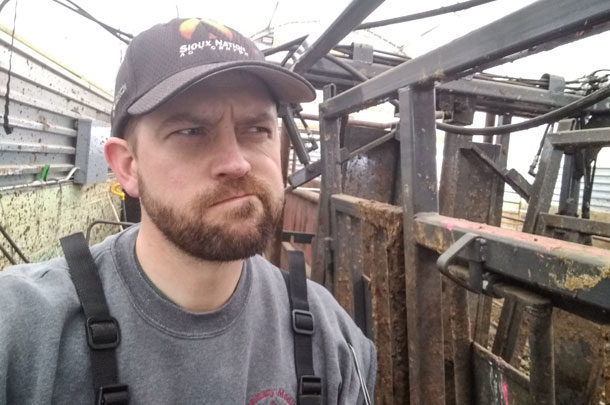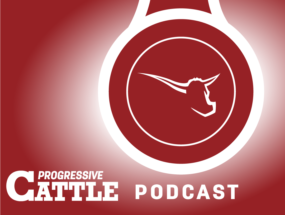Seriously, to dedicate yourself to eight years of intense study just for the opportunity to lie in a pool of blood and feces behind a heifer with a breech calf at 2 a.m. makes a sane person question your decisionmaking.
This isn’t to say there’s not rewards to being a veterinarian. But there’s no doubt that a veterinarian’s mind moves in different directions than most. Consider the following example: Yesterday, a few of us went over to get a sandwich at the Subway next door. While standing in line, I raised the complaint to my fellow veterinarians that this isn’t my favorite place to eat – not because of the food but because they ask so many questions.
Most people would just agree or disagree and move on. We, as veterinarians, instead used our time to calculate the average number of questions fielded by a customer from reaching the counter until leaving with sandwich in hand. For those who are curious, the average was 10.33 questions per customer, with a standard deviation of 2.94.
On the other hand, the analytical mind of a veterinarian comes in handy to do, well, vet things. Take this story from a colleague as a case in point. A nice little old lady brought in her dog that had suddenly started slobbering and acting lethargic. Her grandson carried the dog in for her. The lady was as nervous as a long-tailed cat in a room full of rocking chairs, without any idea what was affecting her beloved pooch. The vet’s questions about different toxic causes were met with answers that didn’t satisfy. There seemed to be nothing in the house that would cause this problem.
Pausing in thought for a moment, a few gears turned in this vet’s brain. He asked if the grandson was just visiting for the day. The lady replied no; her grandson was living with her during the summer off from college.
The veterinarian then asked the grandson if he could help weight the dog on the scale in the other room. As they took the dog into the next room, out of earshot from Grandma, he asked the boy, “OK, what did this dog get into?” The boy glanced over his shoulder to make sure the coast was clear and then replied, “That rotten dog ate my whole stash!” With the mystery resolved, I believe the dog went home with a prescription for potato chips.
There must be something that clicks differently in a veterinarian’s mind that helps sort through the array of information to discover medical solutions. The problems we see in cattle usually have a root cause that isn’t as visible. Right now, as we struggle with treating scours in this wet weather in South Dakota, we must ask if the real problem is colostrum, mineral programs, environment or some wacky toxicity issue rearing its ugly head. The reward with being a veterinarian is when this slightly odd brain can make an observation and couples it with a solution that stops the problem cold. Those are the moments that make the eight years of education worth it. ![]()
Jacob Geis is a veterinarian and blogger in Freeman, South Dakota.
PHOTO: If you've ever wondered what your vet is thinking while working cattle silently, it is one of two things. It's either, "If I can preg these girls at 80 head an hour, I should net enough to cover the next bill coming due," or "I wonder if baldy cows feel self-conscious about being called 'bald'?" Photo provided by Jacob Geis.








